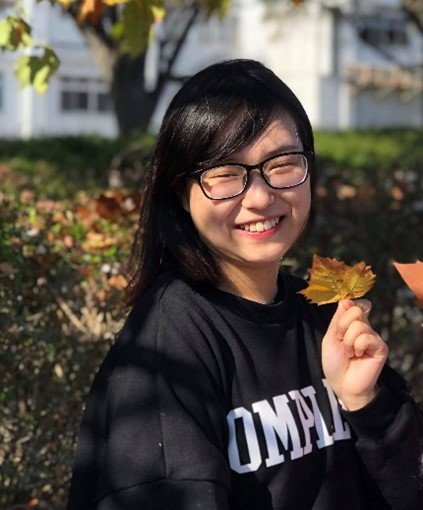Thanh Phuong NGUYEN
 I studied structure and function of cell-cell adhesion in epithelia. Epithelia is one of the four main tissue types in mammals. In epithelial tissue, the cells strongly adhere to each other via cell-cell junctions to ensure epithelial integrity. However, epithelial integrity is constantly challenged by rupture force from the surrounding environment. Therefore, I am interested in the fundamental question of how epithelial cells maintain epithelial integrity to ensure their biological function. I tackled this question during my Ph.D. study.
I studied structure and function of cell-cell adhesion in epithelia. Epithelia is one of the four main tissue types in mammals. In epithelial tissue, the cells strongly adhere to each other via cell-cell junctions to ensure epithelial integrity. However, epithelial integrity is constantly challenged by rupture force from the surrounding environment. Therefore, I am interested in the fundamental question of how epithelial cells maintain epithelial integrity to ensure their biological function. I tackled this question during my Ph.D. study.
The reason I chose NIPS for my Ph.D. is that I was looking for a strong research group in the field of cell biology for graduate study, and found that Cell Structure laboratory of Prof. Mikio Furuse perfectly matches my interest. Cell Structure laboratory is a well-known research group with high reputation in cell biology community, ensuring that I could get strong support for research progress. NIPS gave me an opportunity to work with one of the most talented scientists in the field, which therefore came along with learning the most cutting-edge sciences, accessing various available resources, and plenty of opportunities for collaboration.
The good thing about NIPS is, first, that most of the research groups here are known as superstars in the scientific community for their important contributions. Second is funding opportunities, with the availability of scholarships, fellowships, and grants to support research projects, along with access to advanced research facilities and resources to speed up the research progress. Third is foreign student support, with office staff being very friendly and supportive. Accommodations for students are also provided, helping a lot to decrease the financial issue but still ensuring a good living environment. And fourth, although NIPS is a research institute that may differ from the university system, still, students can receive professional development opportunities, such as seminars, conferences, and lectures in collaboration with other universities. I believe these elements are essential in preparing Ph.D. students for future academic careers.